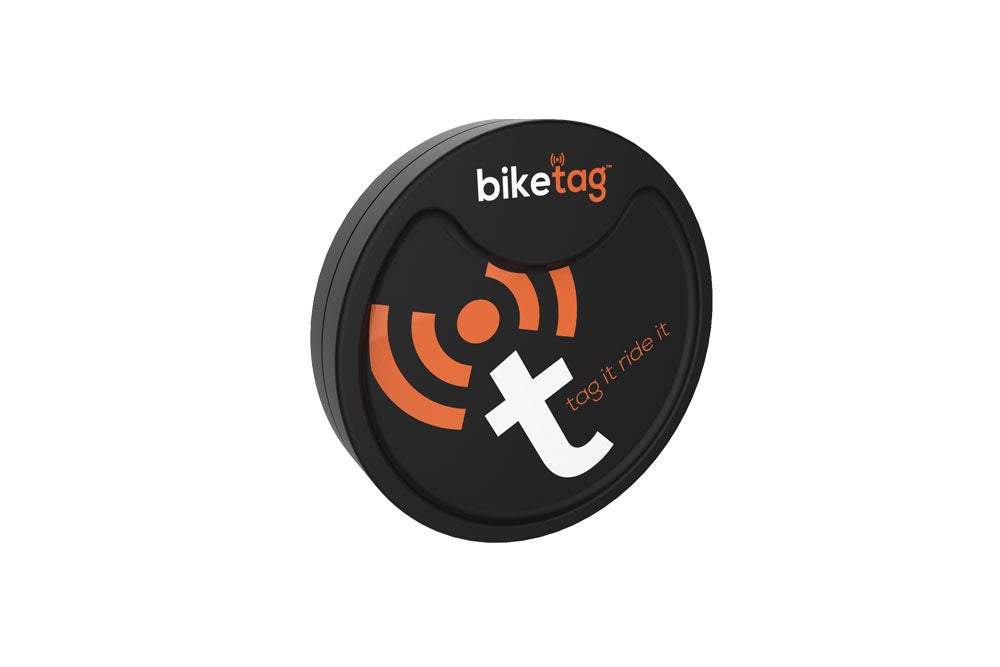Panache: An Open Letter To Professional Cycling

Ride data simplified: Bike Tag records your ride as soon as you start moving, and even alerts loved ones if you crash. Photo: Bike Tag
I’ve mentioned before that one of the amazing things that have come out of writing this blog is that I now work with Rapha. Last week the founder and CEO of Rapha, Simon Mottram, sent out an internal email to employees that I had to share with you. It was too good to keep to ourselves and I’ve posted it below with Simon’s permission.
Dear all
Every year Paris Nice marks the start of season for me, when proper racing finally hits the roads of Europe and arm warmers are symbolically discarded over a week of racing to the sunny Med. No doubt there will be lots of great racing this season and I will be gripped until the Tour of Lombardy. But, like every year, I will also be looking for more from road racing than amazing feats of endurance and power, great teamwork or cagey duels in the mountains. Like every year, I will be looking for the quality that elevates road racing from just a ‘sport’ to something more profound, more meaningful and more uplifting. That quality is panache.
Dictionaries define panache as a grand or flamboyant manner, someone who acts with panache shows verve, style or flair. The word was first used in Edmond Rostand’s play Cyrano de Bergerac and comes from the french term for a plume of feathers – not much to do with bike racing, you might think. And yet, the history of road racing is littered with moments of panache and it is just those moments that touch us most and give us a spiritual, almost human connection to the greatest bike racers. You know panache when you see it: Marco Pantani throwing down his diamond stud before attacking Indurain on the Monte Campione, Jalabert, the sprinter, attacking in the mountains on an all day escape to become an unlikely winner of the King of the Mountains, Cancellara riding away from peloton in the last few km of a Tour stage in 2007, David Millar attacking into Barcelona in 2009, the screams of thousands of his adopted home crowd ringing in his ears. These are exploits that surprise us with their courage and daring. And the riders with panache are often dashing, charismatic individuals who embrace risk and enjoy probing the edges of what’s possible.
My favourite commercial, from Apple in 1999, expressed it well:
“Here’s to the crazy ones. The misfits. The rebels. The troublemakers. The round pegs in the square holes. The ones who see things differently. They’re not fond of rules. And they have no respect for the status quo. You can quote them, disagree with them, glorify or vilify them. About the only thing you can’t do is ignore them. Because they change things. They push the human race forward. And while some may see them as the crazy ones, we see genius. Because the people who are crazy enough to think they can change the world, are the ones who do.” (Apple Inc.)
More often than not, riders with panache are winners. After all, crazy attacks (‘echappees bidon’) quickly lose their appeal if they are always doomed to failure. And yet, panache also involves a high degree of risk. Amazing demonstrations of force and power on the bike are impressive certainly, but they rarely touch us. True panache walks a fine line between success and failure and it’s precisely that uncertainty and tension that touches us and connects the racer’s exploits with our own experience.
Sadly, panache has been in short supply in recent years. Road racing today is increasingly professional, with bigger budgets, more scientific training and expert coaching. It is the era of marginal gains, where riders hide behind helmets and sunglasses, coaches and media advisors, watching their watts and lactate thresholds and rarely taking matters into their own hands. The pro peloton and biggest races seem suffocating and it takes ever more self confidence and spirit for a rider to stamp his will on important races. It makes for less interesting racing and a sport that is losing its connection with the fans. I suppose it’s the price of progress. In the so-called ‘glory days’ of road racing there was less to gain, but also less to lose.
There are flickers of hope and rare moments of panache that cut through. My highlights of last year’s racing? Cancellera riding away from boonen at Flanders without once looking back; Nibali braking on a descent in the Giro to wait for team leader Basso who couldn’t keep up; Rain-soaked Gilbert taking on all comers at Lombardy.
You can call me unrealistic or an old romantic if you like, but this is my call to all riders this season: Show some panache.
Think for yourself. Assert your own personality on a race or a moment. Surprise us and give us something to cheer. Stand up for yourself and stand out from the crowd. Honour yourself and honour the sport. Ultimately you’ll gain more from chancing your arm this season than from grinding out yet another respectable result. And we will love you all the more for it.
To paraphrase Apple, let’s celebrate the crazy ones. The misfits. The rebels. The troublemakers. The ones with panache who make us love the sport of road racing.
Simon
The difference between motivation and inspiration is subtle but distinct. Motivation often comes from an incentive or disincentive in order to reach a goal. A kick in the butt form yourself or someone else. Inspiration is a totally different beast. It comes from within. It ignites a feeling of excitement and energy. I find what Simon has written here inspirational on a number of different levels.
Whether you’re a club racer or a pro, throw caution into the wind and race with some panache.
Enjoy your weekend.

